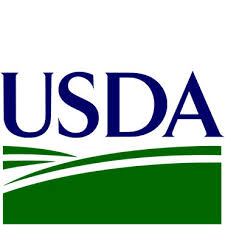Clean energy investments strengthen South Carolina farms and small businesses
April 25, 2024Projects Funded by President Biden’s Inflation Reduction Act Will Lower Energy Costs and Expand Access to Cleaner Fueling Options
In honor of Earth Day 2024, Agriculture Deputy Secretary Xochitl Torres Small announced that the U.S. Department of Agriculture (USDA) is funding more than 700 clean energy projects to lower energy bills, expand access to domestic biofuels and create jobs and new market opportunities for U.S. farmers, ranchers and agricultural producers. Many of the projects are funded by President Biden’s Inflation Reduction Act, the nation’s largest-ever investment in combating the climate crisis.
The projects advance President Biden’s Investing in America agenda to grow the nation’s economy from the middle out and bottom up. They will create jobs and spur economic growth in rural communities by increasing competition in agricultural markets, lowering costs and build more clean energy projects.
“The Biden-Harris Administration and USDA are committed to expanding access to modern clean energy systems and fueling options that strengthen the nation’s energy independence while creating good-paying jobs and saving people money,” Deputy Secretary Torres Small said. “As we celebrate Earth Day this year, we are excited to partner with hundreds more family farms and small businesses to address the impacts of climate change, grow the economy and keep rural communities throughout the country strong and resilient.”
In South Carolina, USDA is providing $634,700 in funding through the Rural Energy for America Program (REAP).
Clean Energy Production
“South Carolina has been awarded more than $634,000 in the latest round of REAP funding,” stated George W. Hicks, Jr., Acting State Director for South Carolina USDA Rural Development. “These initiatives aim to enhance rural power production through energy-efficient upgrades, ultimately reducing energy costs for local farms and businesses.” The REAP program helps agricultural producers and rural small business owners expand their use of wind, solar, geothermal, and small hydropower energy and make energy efficiency improvements. These innovations help them increase their income, grow their businesses, address climate change and lower energy costs for American families.
The REAP program is part of the President’s Justice40 Initiative, which aims to ensure 40% of the overall benefits of certain federal climate, clean energy and other investment areas flow to disadvantaged communities that are marginalized by underinvestment and overburdened by pollution.
These investments will cut energy costs for family farms and other businesses, increasing their
resiliency, and allowing them to invest back into their communities by creating new jobs and
other opportunities. For example:
- In Anderson County, Milky Way Jersy Farm, dba Milky Way will use a $79,022 grant to
purchase and install a new chiller. Milky Way is a dairy and creamery that has been in
operation since 1978. This project will save 2,833 kilowatt hours (kWh) per year, which
is enough electricity to power one home. - Howle Farms and Livestock, LLC, a family-owned poultry operation located in
Darlington County, will use an investment of $154,590 to buy and install a 43.55 kW
direct current (DC) roof-mounted PV solar array with battery storage. This project will
realize $7,925 per year in savings and will save 61,052 kWh per year, which is enough
electricity to power six homes. - Kiran Fitness LLC, located in Cherokee County, will use a $260,548 grant to buy and
install a 235.44 kW (DC) roof-mounted PV solar array. Kiran Fitness LLC is a physical
fitness and training center founded in 2019. This project will realize $15,918 a year in
savings and will replace 308,363 kWh per year, which is enough electricity to power 28
homes. - In Clarendon County, Phamily Poultry Farms LLC, will use a $140,620 grant to purchase
and install a 126.7 kW (DC) ground-mount solar photovoltaic (PV) system. Phamily
Poultry Farms LLC is a family-owned poultry operation. This project will generate
199,414 kWh per year, which is enough electricity to power 18 homes.
USDA is making additional REAP awards in Alabama, Arizona, Arkansas, California, Delaware, Florida, Georgia, Idaho, Illinois, Indiana, Iowa, Kansas, Louisiana, Maine, Maryland, Michigan, Minnesota, Mississippi, Missouri, Montana, Nebraska, New Jersey, New Mexico, New York, North Dakota, Ohio, Oregon, Pennsylvania, Tennessee, Texas, Utah, Washington, Wisconsin,
Wyoming, and Puerto Rico.
Since the start of the Biden-Harris Administration, USDA has invested more than $2 billion through REAP to support renewable energy and energy efficiency improvements that will help rural business owners lower energy costs, generate new income, and strengthen their resiliency of operations.
USDA continues to accept REAP applications and will hold funding competitions quarterly through Sept. 30, 2024. The funding includes a dedicated portion for underutilized renewable energy technologies. For additional information, contact a local energy coordinator.
USDA Rural Development provides loans and grants to help expand economic opportunities, create jobs, and improve the quality of life for millions of Americans in rural areas. This assistance supports infrastructure improvements; business development; housing; community facilities such as schools, public safety, and health care; and high-speed internet access in rural, tribal, and high-poverty areas. Visit the Rural Data Gateway to learn how and where these investments are impacting rural America. To subscribe to USDA Rural Development updates, visit the GovDelivery Subscriber Page.
USDA touches the lives of all Americans each day in so many positive ways. Under the Biden- Harris Administration, USDA is transforming America’s food system with a greater focus on more resilient local and regional food production, fairer markets for all producers, ensuring access to safe, healthy and nutritious food in all communities, building new markets and streams of income for farmers and producers using climate-smart food and forestry practices, making historic investments in infrastructure and clean energy capabilities in rural America, and committing to equity across the Department by removing systemic barriers and building a workforce more representative of America. To learn more, visit www.usda.gov.















